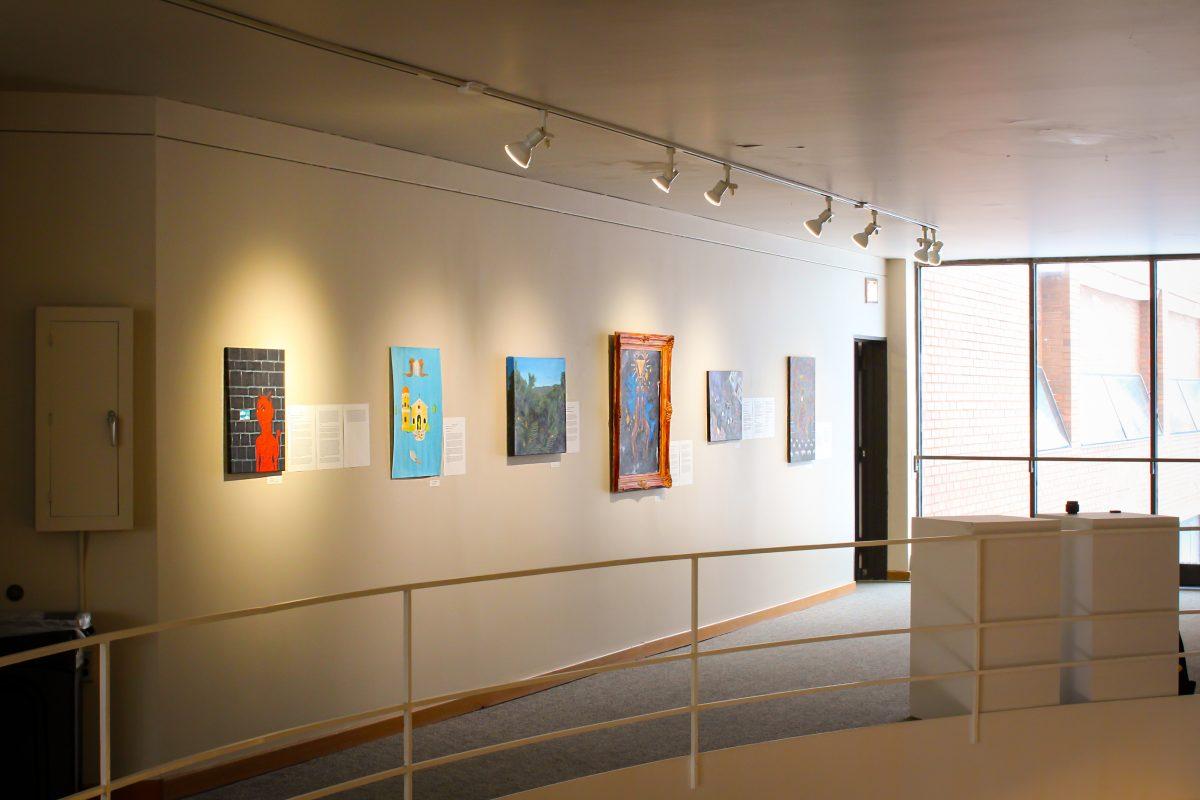Marking 100 years since the 19th Amendment
by GRACE HILSCHER
Drake University’s Law Library held a reception to kick off the Centennial Anniversary Celebration of the 19th Amendment, the amendment giving women the right to vote.
From Jan. 23 to Jan. 31, the library was home to the traveling art exhibit “100 Years After the 19th Amendment: Their Legacy, and Our Future.”
John Ewards, the Associate Dean and Director of the Drake Law Library, was responsible for coordinating with the American Bar Association to make Drake one of the first stops on the exhibt’s tour across America.
According to Drake’s press release, the exhibit won a 2019 Graphic Design USA Award. The exhibit was made up of six banners detailing the history of the women’s suffrage movement as well as the challenges faced by women today.
“The display from the ABA traces the [movement’s] history from Seneca Falls to the women’s march in 2017,” Edwards said. “It tells the story of the struggle to get the 19th Amendment passed, then their next step of trying to secure equal rights.”
This next step would take decades. A few years after the 19th Amendment was passed in 1919, the Equal Rights Amendment was passed and sent out to be ratified by the states. The 38th state just ratified the Equal Rights Amendment this year. The exhibit lends a hand to remind viewers of the past and the history that lead us to today working to ratify the Equal Rights Amendment.
During the unveiling, Roxanne Conlin, a distinguished lawyer, Drake alumnae, one of the first two women in the country to be named a US attorney and a pioneer for women’s rights, was one of the speakers. In her speech, she spoke of the struggles many women and men went through to help women secure the right to vote.
She highlighted women who were integral to the movement such as Abigail Adams, Amelia Bloomer and Carrie Chapman Catt.
Along with the ABA’s six-paneled exhibit, the event showcased a limited edition commemorative calendar by artist Gary Kelley titled “Hard Won, Not Done.” The calendar features twelve Iowans who played a role in the women’s rights movement.
Some of the women in the calendar include Elizabeth Catlett, the first African American woman to earn a Masters of Fine Arts from Iowa University; Jean Adeline Morgan Wanatee, an American Indian and women’s rights activist; Edna Griffin and many more influential women.
Calendars are still available in the Law Library to commemorate brave women all year-long.
The exhibit also came while the campus was preparing for the Iowa caucuses and the 2020 presidential election. The event was to not only kick off the celebration of the 100th anniversary, but also to remember the history and struggle that brought women the right to vote, as well as the work that is still needed to be done.
“We need to remember our history, we need to always remember women suffered greatly to earn the right to vote and we dishonor their memory if we do not exercise it,” Conlin said in her speech. “They earned us the right to vote with their bodies and blood and we cannot betray them. We must vote. Men have always got it by birth; you should vote too.”







